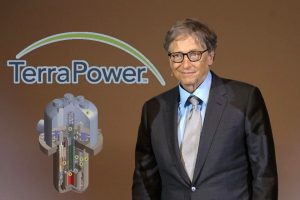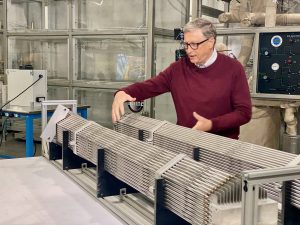
TerraPower Considers Kansas for Advanced Nuclear Power
Kansas could become home to one of the most advanced nuclear power plants in the nation. TerraPower, the nuclear energy company cofounded by Microsoft founder Bill Gates, has confirmed it is exploring sites in Evergy’s service area in Kansas for one of its next-generation nuclear reactors.
The announcement comes only weeks after TerraPower broke ground on its $4 billion demonstration plant in Kemmerer, Wyoming. That project, supported by the U.S. Department of Energy (DOE), is the company’s first commercial-scale advanced Natrium reactor.

Political Leaders Support Nuclear Expansion
Kansas leaders reacted quickly to the news. Gov. Laura Kelly, a Democrat, framed nuclear as part of a broader energy portfolio.
“We need to explore all available sources to power the future of our great state,” Kelly said in a statement.
Support also came from Kansas Republicans. Sen. Roger Marshall called nuclear a necessary step forward:
“Nuclear energy is the way of the future,” Marshall said.
Sen. Jerry Moran, another Kansas Republican, echoed the need for stable, carbon-free power that can support economic growth while reducing emissions.
Nuclear Power’s Role in Kansas Energy
Kansas has one nuclear power facility already: the Wolf Creek Generating Station, near Burlington, which produces about 1,200 megawatts of electricity—roughly one-third of Kansas’ total energy demand. The addition of an advanced reactor would diversify the state’s energy mix and provide long-term stability as coal plants retire and renewable demand rises. Evergy, the state’s largest utility, has said it needs to expand energy resources to keep up with projected demand from data centers, electric vehicle growth, and industrial expansion.
TerraPower’s Natrium Reactor Design
The Natrium design uses liquid sodium as a coolant and integrates energy storage. This allows the plant to ramp up electricity production quickly during high-demand periods while maintaining high efficiency. The technology is designed to be safer and more flexible than traditional light-water reactors. If Kansas moves forward, it could position itself as a regional hub for advanced nuclear energy in the central United States, complementing nearby wind and solar capacity.
Click here for Topeka Capital Journal

